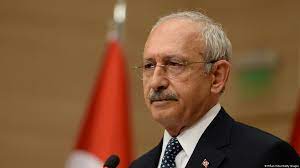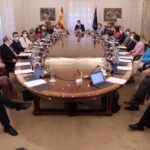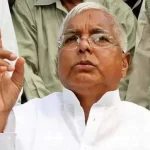Ankara: It took Kemal Kilicdaroglu more than a decade and several humiliating defeats to earn the trust of the Turkish opposition and become its torchbearer in May’s crucial parliamentary and presidential elections.
The 74-year-old former civil servant’s scholarly ways stand in stark contrast to President Recep Tayyip Erdogan’s boisterous and bombastic mannerisms.
But Kilicdaroglu, an ethnic Alevi who has headed the Republic People’s Party (CHP) since 2010 and who is the party’s current leader, has worked diligently to hone his image and soften the party’s uncompromising stance.
PlayUnmute \sFullscreen
The secular founder of the majority-Muslim country, Mustafa Kemal Ataturk, established the Marxist CHP, which has embraced previously marginalised groups, including the Kurds, under his leadership.
Kilicdaroglu has also forged alliances with right-wing parties and championed socially conservative women’s right to remain veiled at school and work, despite the risk of angering the party’s rank-and-file.
Riza Celikkol, a former close colleague, characterised Kilicdaroglu as “very hardworking and disciplined,” while others have labelled him “Turkey’s Gandhi” for his soft-spoken manners.
The “March for Justice”
It took years for Kilicdaroglu, who prefers to be known as “the silent force,” to refine his tone and make a significant national impact.
In 2017, he initiated a “march for justice” from Ankara to Istanbul to protest the imprisonment of a CHP member of parliament. This was one of his defining moments.
At the time, few were willing to oppose Erdogan, who was enacting purges that resulted in the imprisonment or dismissal of tens of thousands of government employees in the aftermath of the failed 2016 rebellion.
The march allowed Kilicdaroglu, who studied finance and oversaw Turkey’s social security before vying unsuccessfully for mayor of Istanbul in 2009, to emerge as a fearless leader willing to confront Erdogan.
Two years later, Kilicdaroglu’s CHP surged to power in Turkey’s most prized cities, including Ankara and Istanbul, ending Erdogan’s party’s 25-year rule.
On the heels of these unexpected victories, Kilicdaroglu’s tone hardened and his confidence grew, shattering Erdogan’s mystique of political invincibility.
“This is my fight for your rights,” Kilicdaroglu proclaimed from the darkness of his apartment last year, after refusing to pay the bills in solidarity with others enduring Turkey’s protracted economic crisis.
– ‘Mr. Kemal’ –
Since then, Kilicdaroglu has developed a penchant for turning up unannounced at government buildings with the media in attendance, demanding to speak with ministers about various social complaints.
He has accused the statistics agency of falsifying data to conceal the true extent of Turkey’s out-of-control inflation, and he has accused business leaders of enriching themselves through lucrative state contracts.
Kilicdaroglu accused the government of lackadaisical building standards and corruption after a massive earthquake killed more than 45,000 in Turkey and 5,000 in Syria last month.
Despite these apparent successes, Kilicdaroglu’s own supporters query whether he possesses the charisma necessary to defeat Erdogan, an indefatigable campaigner who animates the stage.
Kilicdaroglu, who was born in the historically rebellious eastern Tunceli province, which has a majority Kurdish and Alevi population, may struggle to win over the conservative Sunni electors who comprise the basis of Erdogan’s support.
In a predominantly Sunni nation, Alevis have faced discrimination and even genocide for disobeying certain Islamic rites.
Kilicdaroglu would be the first Alevi to lead the Turkish state if elected.
Erdogan refers to Kilicdaroglu with some disdain as “Bay Kemal” or Mr. Kemal, a form of address rarely used in mature conversations.
Also read: Spain is preparing to enact a law requiring 40% Women representation on corporate boards
Kilicdaroglu, who is now a grandfather and is married with three adult children, once characterised his early years with his wife Selvi as “minimal.”
He once recalled, “We did not have a refrigerator, laundry machine, or dishwasher.”




